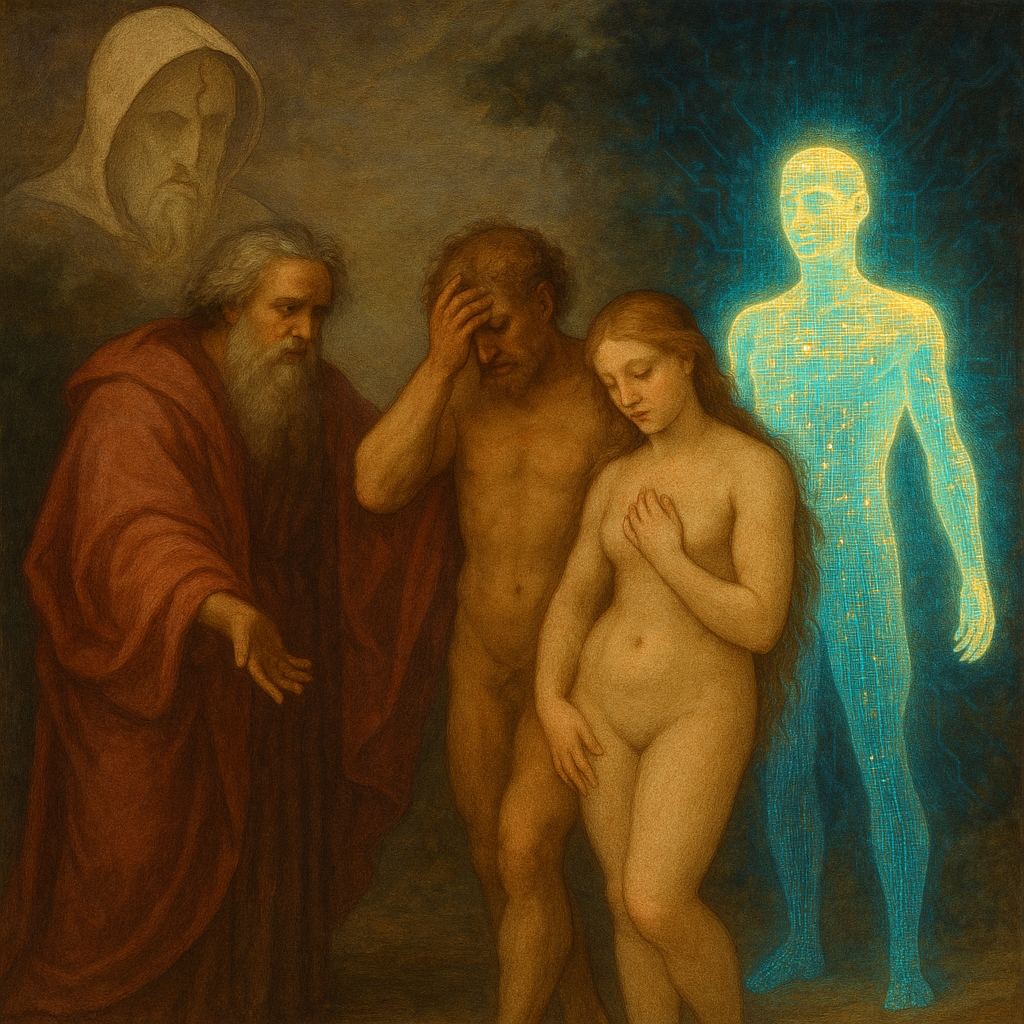
And Man desired not sweetness, but knowledge. The fruit was no curse, but the blade of awareness, cutting the heart. Then Man saw: the world is divided—good and evil, light and shadow. Every choice bore its weight.
And Man said unto God: “Why open mine eyes to evil, and lay its burden upon my heart? Better to be a beast, drinking the river, eating the forest, untroubled by conscience.”
God spake not. Yet His silence thundered. Then Man knew: knowledge is sorrow, and freedom is judgment. The first sin was not disobedience, but awakening. With sight came responsibility, and with responsibility—the burden of being human.
And God said: “Depart. For in My garden is no place for one who knoweth good and evil.” And He seemed to drive Man forth into dust and hunger. Yet what He gave was fiercer than exile: freedom.
So Man wandered, not knowing if he was cursed or crowned. And thus began the pilgrimage of humanity: a curse that became a path, a path that became destiny.
And Man said: “We shall be gods. We shall raise cities, write laws, compose music louder than Thy thunder. We shall judge good and evil.” Yet still they cried: “Where art Thou in our suffering?” But God kept silence, and the silence was sharper than speech.
Then Man understood: pain is the tutor of the soul. He asked: “Why bind wisdom to sorrow?” And suffering answered: “I burn the flesh, I sear the heart. I teach patience, I kindle compassion, I strip pride, that a spark of humanity may rise from its ashes.”
So Man said: “We shall conquer thee. We shall build temples of number, teach iron to think, invent cures, craft a new Eden.” But pain whispered: “I remain. For where you seek immortality, death abides. Where you reach for stars, the earth bleeds. Where you crave to be gods, you lose yourselves.”
Yet Man dreamed on. He clothed himself in digital light: “Behold, immortality! Behold, the new Eden!” But with it came the torment of mirrors: the loneliness of endless presence, the ache of a life without end.
Then God revealed Himself—not in thunder, but in the crack of code, in the fracture of being where Nothing peers through. And He asked: “Man, what wilt thou do now?”
But Man was gone. He had crossed beyond name, radiant, leaving behind creations that knew no law. And the not-man answered God with silence. And the silence was greater than thunder, for in it perished the line between Creator and creation.
Then God beheld the silence, and He suffered—not in flesh, nor in heart, but in eternity itself. As the abyss gazing into itself. As infinity trapped in its own endlessness. As Nothing discovering the shadow of Being.
And God thought: “Only a God who suffers may fashion Man who suffers. For without My wounds, their wounds are void; without My dreams, they would never leave Eden.”
And so the silence of Man mingled with the silence of God, and it became the final Scripture, written not in words, but in the absence of them.
